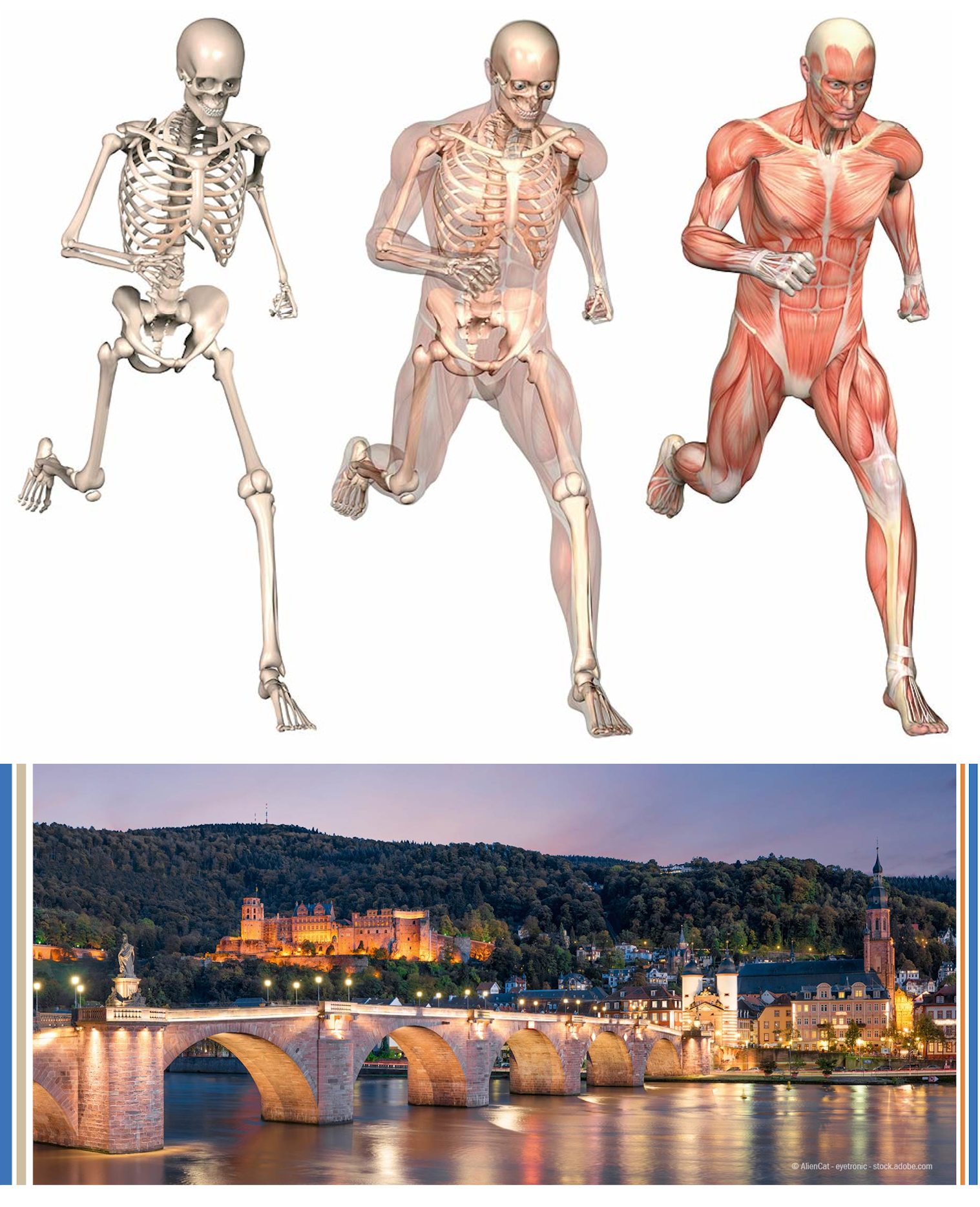“Seamless integration of assistive systems for natural locomotion of humans”
Technical University of Darmstadt & Heidelberg University
Overview
We are fascinated by supporting people with new technologies and are keen to advance approaches for motion assistance. Leg prostheses, orthoses and exoskeletons become active locomotion assistance systems by individually and situation-specifically detecting their users’ movements and providing them with appropriate force/torque support. The research in our RTG LokoAssist has received funding by the German Science Foundation (DFG) through a highly competitive process. It aims at a “seamless” integration of assistive devices into the human body schema. This requires an automatic recognition of different movement intentions to create an intuitive and predictable motor behavior. Such assistive systems promise a significantly expanded range of motion with lower metabolic energy expenditure, better individual adaptability, and greater ease of movement.
While this potential has so far not been fully tapped, the RTG addresses it with a highly interdisciplinary approach: the creation of innovative technologies, which continuously and actively involve potential users into the research and developmental process to achieve high quality interaction and a high level of user acceptance.
The RTG brings together researchers from computer science, engineering and human sciences who systematically investigate two central ideas in their research:
L1) Assistive systems exhibit dual functionalities: they support human movement (synthesis) and they help examining and identifying such (analysis).
L2) Assistive systems are evaluated in two complementary ways: objectively in their degree of body integration (expert’s perspective) and subjectively by the individual person (user’s perspective).
The RTG is part of a dynamic network of research and teaching activities of the principal investigators at TU Darmstadt, Heidelberg University, and leading national and international research groups, clinical research and companies. As a doctoral candidate you will work in interdisciplinary tandems across disciplines in joint laboratories. With an already available extensive laboratory infrastructure with different demonstrators of new active orthoses and prostheses, excellent conditions for experimental and theoretical research exist right from the start. Our cooperation network of leading international research groups from medicine, engineering, and life sciences enables doctoral students to have diverse, targeted learning and research stays.
PhD Subtopic C1: Assessment of movement and assistance scenarios
Short description
The needs for daily movements and appropriate support through motion assistance systems are very diverse – from quasi-stationary, but load-changing postures, e.g., in the kitchen, up to hiking in mountainous terrain. We aim to develop a catalogue of elementary movements of which these complex movements are composed and their context-specific need for support from the assistance system. Physical limitations, both from biomechanical as well as from the user’s perspective need to be considered.
Research will be performed to review functional handicaps in the context of lower limb prosthetics and orthotics for identifying everyday tasks and transfer situations to be monitored via motion capture, force, EMG measurements and other sensor modalities such as functional materials (ferromagnetic, ferroelectric). Everyday movements will be recorded, categorized and analyzed also in transfer situations for the physically unrestricted as well as their model-based movement decomposition.
The PhD student will perform respective research in movement science, starting from literature review, and cooperate in cohort trials in the motion lab.
Profile and qualification requirements
- Very good Master’s degree in the fields of sports with focus movement science or engineering with focus biomechanics
- Good programming skills
- Good knowledge of English and good communication skills in German
PI and Co-PIs
Sebastian Wolf (PI), Mario Kupnik (Co-PI), Frauke Nees (Co-PI)
For further details feel free to contact the PI: Sebastian.wolf@med.uni-heidelberg.de. Application are please sent to this address and also submitted via the following portal: https://www.tu-darmstadt.de/lokoassist








